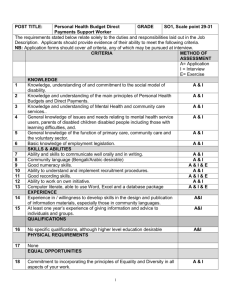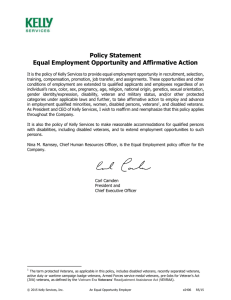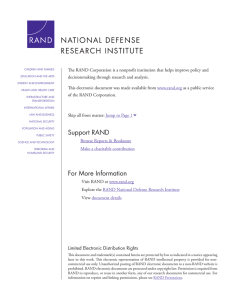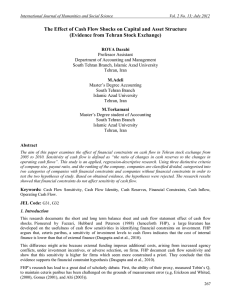WHERE DOES INCOME COME FROM
advertisement
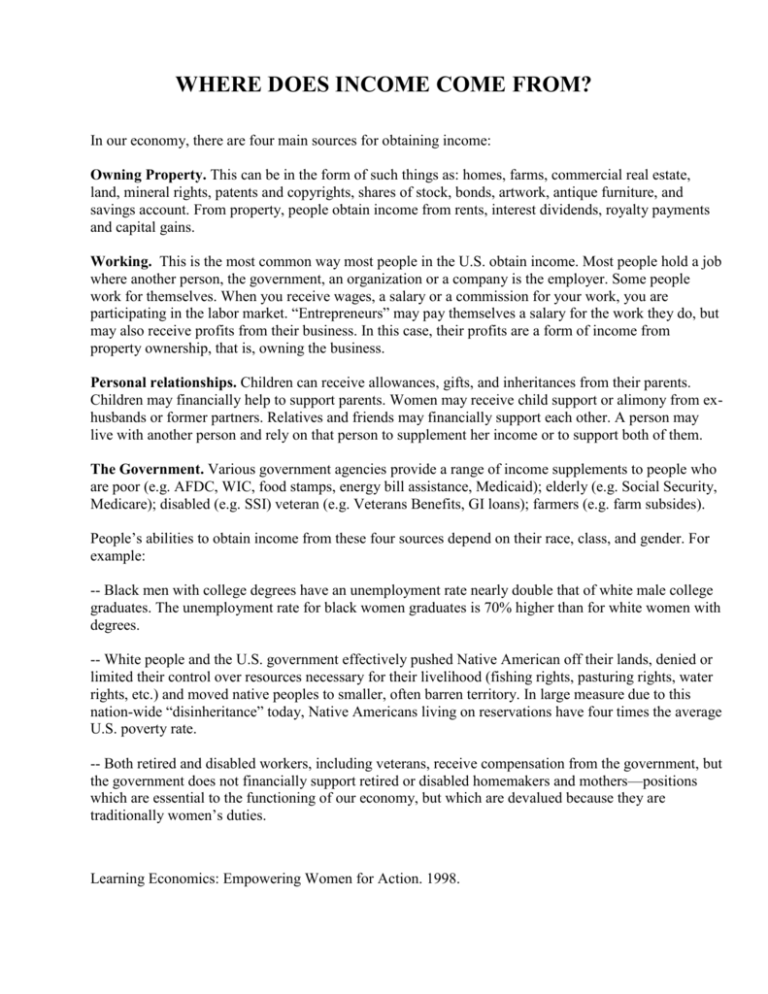
WHERE DOES INCOME COME FROM? In our economy, there are four main sources for obtaining income: Owning Property. This can be in the form of such things as: homes, farms, commercial real estate, land, mineral rights, patents and copyrights, shares of stock, bonds, artwork, antique furniture, and savings account. From property, people obtain income from rents, interest dividends, royalty payments and capital gains. Working. This is the most common way most people in the U.S. obtain income. Most people hold a job where another person, the government, an organization or a company is the employer. Some people work for themselves. When you receive wages, a salary or a commission for your work, you are participating in the labor market. “Entrepreneurs” may pay themselves a salary for the work they do, but may also receive profits from their business. In this case, their profits are a form of income from property ownership, that is, owning the business. Personal relationships. Children can receive allowances, gifts, and inheritances from their parents. Children may financially help to support parents. Women may receive child support or alimony from exhusbands or former partners. Relatives and friends may financially support each other. A person may live with another person and rely on that person to supplement her income or to support both of them. The Government. Various government agencies provide a range of income supplements to people who are poor (e.g. AFDC, WIC, food stamps, energy bill assistance, Medicaid); elderly (e.g. Social Security, Medicare); disabled (e.g. SSI) veteran (e.g. Veterans Benefits, GI loans); farmers (e.g. farm subsides). People’s abilities to obtain income from these four sources depend on their race, class, and gender. For example: -- Black men with college degrees have an unemployment rate nearly double that of white male college graduates. The unemployment rate for black women graduates is 70% higher than for white women with degrees. -- White people and the U.S. government effectively pushed Native American off their lands, denied or limited their control over resources necessary for their livelihood (fishing rights, pasturing rights, water rights, etc.) and moved native peoples to smaller, often barren territory. In large measure due to this nation-wide “disinheritance” today, Native Americans living on reservations have four times the average U.S. poverty rate. -- Both retired and disabled workers, including veterans, receive compensation from the government, but the government does not financially support retired or disabled homemakers and mothers—positions which are essential to the functioning of our economy, but which are devalued because they are traditionally women’s duties. Learning Economics: Empowering Women for Action. 1998.







